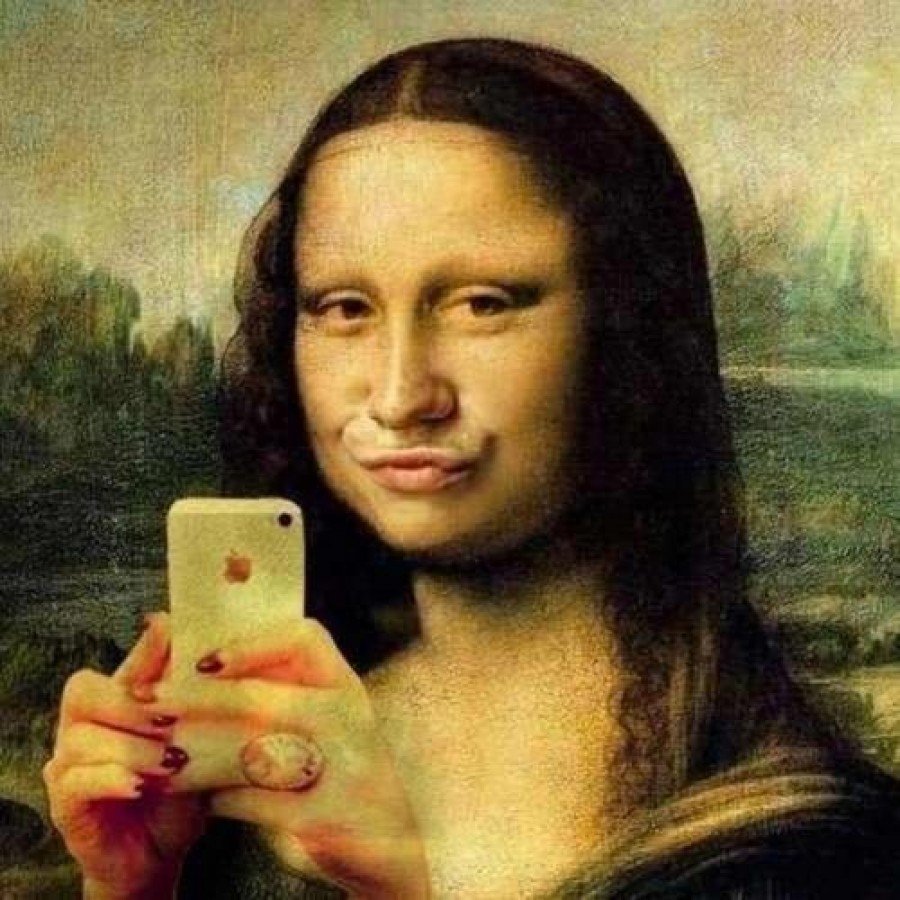Your cart is currently empty!

The Illusion of Grandeur
Understanding and Identifying the Mental Disorder of Social Overestimation
I bet it would take you less than a minute to think of one person you know that is guilty of this. We all know someone that, for some unknown reason, thinks they’re more way important than they actually are. I guess, to be fair, even the most popular celebrities had to start somewhere. But without sounding like a complete and total ass, there are definitely some folks that literally came out of nowhere and are trying way too hard to appear important. For example, if a social media account consists primarily of duck lipped selfies at certain historic or haunted locations, and not of the locations you’re at, or there is zero content about the location, you might have an issue. Assuming you’re an influencer is never a good look. Creating your own merch to promote this lifestyle choice and expecting the rest of us to buy it simply to fund your next outing is equally wrong. While you may have supporters and others that want to live vicariously through your carefree/jobless lifestyle, the rest of us are genuinely concerned about you. On another note, If you’re sitting back and reading this, and you can’t for the life of you think of someone; you’re it.
In the intricate web of human social dynamics, the perception of one’s significance occupies a central place. However, for some individuals, this perception becomes distorted, leading them to believe they hold a level of social importance that far exceeds reality. This cognitive distortion, often referred to as a mental disorder, is a topic of profound interest and concern in the field of psychology. In this comprehensive exploration, we delve into the multifaceted dimensions of this phenomenon, analyzing its psychological roots, societal impact, and potential treatment strategies. Through a meticulous examination of case studies, psychological theories, and real-world examples, this discourse aims to shed light on the enigmatic world of individuals who grapple with the belief that they are more socially significant than they truly are.
At its essence, social overestimation is the act of perceiving one’s social importance, influence, or abilities as significantly greater than they actually are. This distorted self-perception, often observed in various contexts, forms the crux of the mental disorder we aim to dissect.
Cognitive Biases and Distortions: A myriad of cognitive biases, including confirmation bias and the illusion of superiority, contribute to the development and perpetuation of the illusion of grandeur.
Low self-esteem and a fragile sense of identity can lead individuals to compensate by constructing an inflated self-image, perpetuating the illusion of grandiosity.
Overestimating one’s social importance can strain relationships, leading to misunderstandings, conflicts, and an inability to empathize with others. In workplace settings, individuals with this disorder might struggle with collaboration, teamwork, and accepting constructive criticism, leading to professional isolation.
The rise of social media platforms and the glorification of celebrity lifestyles contribute significantly to the proliferation of social overestimation, blurring the lines between reality and illusion.
Cultural Norms and Expectations: Societal pressures to conform to certain standards of success and popularity can exacerbate feelings of inadequacy, prompting individuals to construct fantastical narratives about their social importance.

Exploring real-life case studies and personal narratives provides invaluable insights into the experiences of individuals struggling with the mental disorder of social overestimation. These stories offer a human touch to the academic discourse, emphasizing the importance of empathy and understanding when dealing with this complex issue.
Cognitive Behavioral Therapy (CBT) and psychoanalytic therapy are effective in helping individuals challenge their distorted beliefs and develop a more realistic self-perception.
Peer support and shared experiences within support groups can provide a sense of belonging and understanding, reducing the isolation often felt by individuals with this disorder.
The mental disorder of social overestimation stands as a compelling testament to the intricate interplay of psychological, social, and cultural factors in shaping human perception. By fostering awareness, empathy, and accessible mental health support, society can take significant strides toward helping individuals recalibrate their self-perception, fostering a healthier, more interconnected social fabric. As we continue to unravel the complexities of this disorder, it is our collective responsibility to nurture a world where every individual’s worth is acknowledged realistically, free from the constraints of distorted self-importance. Through understanding and support, we can pave the way for a more compassionate and inclusive future, where the illusion of grandeur finds its rightful place within the annals of human psychology, understood, acknowledged, and addressed.
Psychological research and studies explore the effects of social media on individuals with narcissistic tendencies or inflated self-perceptions. Here are some studies and research papers that delve into this area:
“Social Media Use and Narcissism” by Soraya Mehdizadeh (2010): This study examined the relationship between excessive use of social networking sites and narcissistic tendencies among college students. It found a positive correlation between the two, suggesting that individuals with narcissistic traits tend to engage more in self-promotion and presentation of an idealized self on social media platforms.
“The Influence of Social Media Use on Narcissistic Behavior” by Elliot Panek et al. (2015): This research investigated how social media use contributes to narcissistic behaviors. The findings suggested that individuals high in narcissism were more likely to post self-promoting content on social media platforms and seek validation through likes, comments, and shares.
“The ‘Sagas of the Self’: Pathological Narcissism and Self-Presentation in Social Media” by Agnieszka Golec de Zavala et al. (2018): This study explored the link between pathological narcissism and self-presentation on social media. It found that individuals with narcissistic tendencies tend to portray an idealized version of themselves on social media, emphasizing their achievements and importance




 designed and developed by
designed and developed by